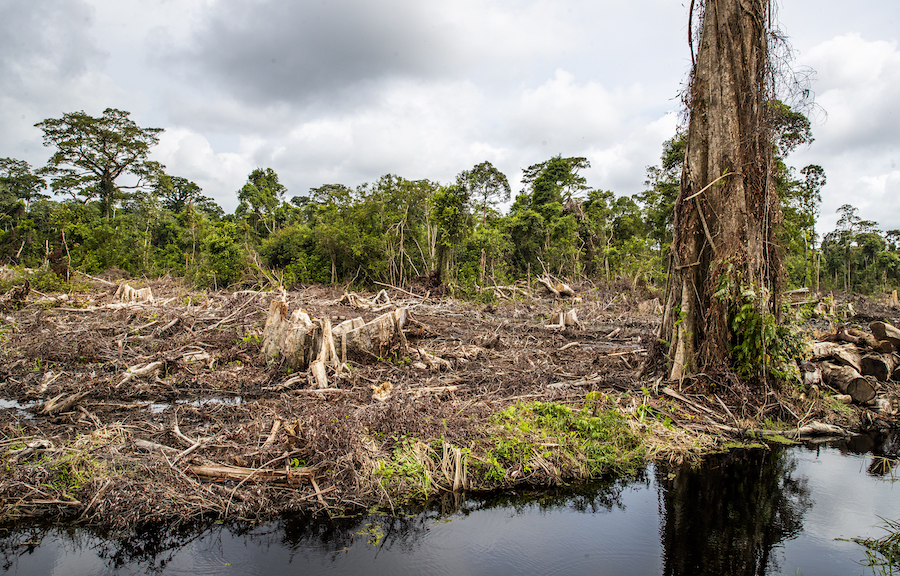Tropical rainforests are home to much of the world’s terrestrial biodiversity and are critical to climate stability. However, these ecosystems and the people who depend on them are under severe threat from the continued expansion of agribusiness and logging. While the devastating social and environmental harms related to these industries are widely known, behind the scenes, the finance sector plays an outsized role in global deforestation by financing agribusiness and logging companies.
The inaugural report, Banking on Biodiversity Collapse, launched on ‘Finance Day’ at COP28 by the Forests & Finance Coalition. The report maps commercial financial flows to the forest-sector operations of 300 companies within six forest-risk commodity sectors – beef, palm oil, pulp and paper, rubber, soy, and timber – collectively causing the most tropical deforestation globally. This report lays out the role that banks and investors play to drive deforestation, biodiversity loss, climate change, and human rights abuses in tropical forest regions through credits and investments. By making lofty pledges on sustainability without any real transparency or accountability, finance are enabling bad actors and are complicit in driving biodiversity collapse.
Banks and financiers invest billions in forest destruction
We assessed over 100 financial institutions and found that financial flows to the forest-risk commodity sector are dominated by banks in Brazil, Indonesia, China, the United States, and Japan, collectively representing 73% of all recorded credit since 2016. We also found that from January 2016 to September 2023, banks provided at least US$307 billion in credit. Moreover, institutional investors held US$38 billion in shares and bonds as of September 2023, with 66% of this total coming from just two countries, the United States and Malaysia.
Our analysis shows that financial institutions’ existing policies that claim to mitigate the risks and impacts to forests and communities are dangerously inadequate. The findings suggest that much of the finance is being provided without the necessary safeguards to prevent deforestation and other social and environmental harms.
We looked at case studies of four corporations – JBS, Cargill, Royal Golden Eagle, and Sinar Mas Group – to showcase the type of egregious client behaviors that are tolerated and facilitated by banks and investors. These corporations have extensive legacies of land grabbing in Indigenous and local communities, rights abuses, greenhouse gas emissions, and unceasing deforestation. Unfortunately, the behaviors in these case studies are emblematic of the bad practices allowed by financiers across the sector. Despite mounting evidence, banks and investors appear to be systematically ignoring harms in order to maintain highly profitable business relationships.
Systemic solutions are needed to end systemic biodiversity collapse
The financial sector appears to be failing to address its role in environmental destruction and rights abuses. Governments and financial institutions need to act now to address the climate and biodiversity crises. This report advocates for governments to step in and mandate financial sector regulation necessary to safeguard society and the ecosystems on which we all depend. This is a systemic problem which ultimately demands stronger, more systemic interventions.
We call on governments and the financial sector to adopt 5 basic principles: halt and reverse biodiversity loss, respect and prioritize the rights of Indigenous Peoples and local communities, foster a just transition, ensure ecosystem integrity, and align institutional objectives across sectors.
At a time when catastrophic climate impacts are felt around the world, and critical ecosystems that enable a liveable planet are on the brink of failure while the people defending their lands and rights are being threatened and criminalized – business as usual is no longer an option.
Read the full report and learn more on the Banking on Biodiversity Collapse landing page. You can also engage with our full Financial flows dataset and policy assessments on the Forest & Finance platform, and read the latest news, analysis and blogs relevant to forests and finance issues.
